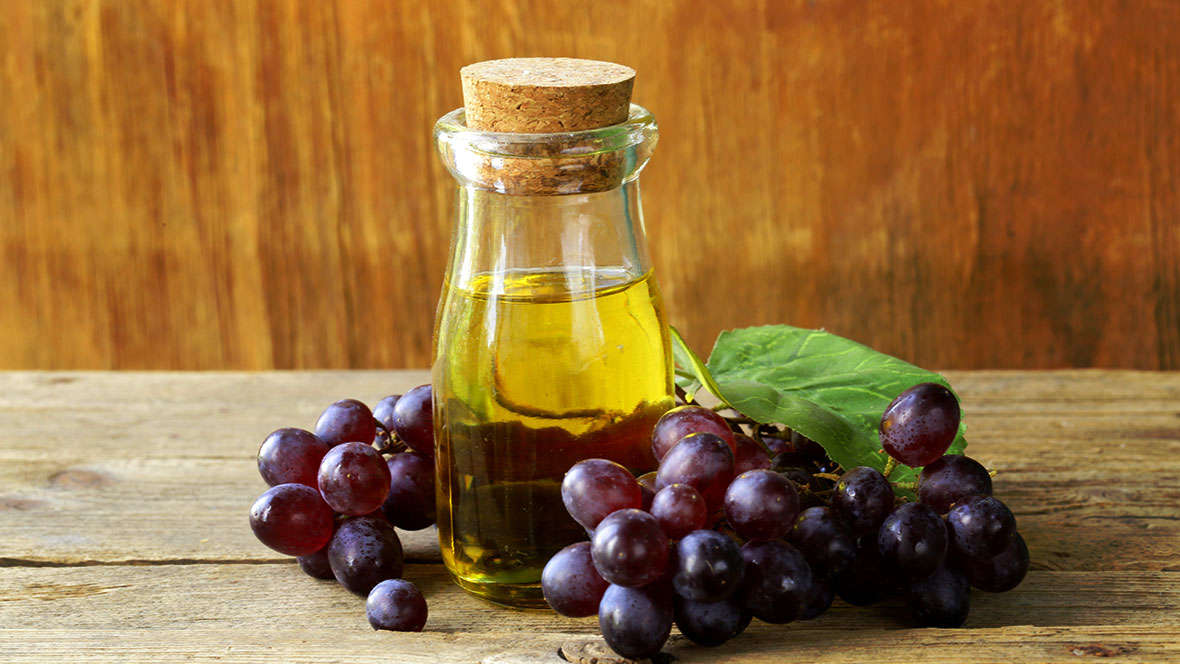Probably everyone heard about grape seed oil, because it can be found on a kitchen shelves of many of us. Some people, while eating fresh grapes spit out seeds present in fruits, and those are seeds used for extraction of cold pressed oil. We hear a lot about beneficial properties of grape seed oil with greenish colour, but how much of it is true? Very little.
 THE MOST COMMON LIES ABOUT GRAPE SEED OIL
THE MOST COMMON LIES ABOUT GRAPE SEED OIL
Grape seed oil has no anti-cancer properties!
Probably, there isn’t many people who know, that in 90% cases cancer is related to unhealthy life style – bad diet, smoking cigarettes, lack of physical activity or air pollution. Part of cancers is a family diseases. Grape seed oil has no influence on neither of those factors, so it cannot has anti-cancer properties.
There are no antioxidants in grape seed oil!
Articles on the Internet very often describe marvellous properties of grape seed oil, which should consist of high amount of antioxidants, including flavonoids and OPCs (Oligomeric Proanthocyanidins). It can’t be denied that grape seed oil consists of many OPC. However, this antioxidant is not present in a composition of oil for one simple reason. OPCs are polar molecules, which cannot dissolve in a polar oil.
Omega-6 acid in grape seed oil can be harmful!
Grape seed oil contains plenty of polyunsaturated fatty acids. There are two main categories of those fats: omega-3 and omega-6, but only ingestion in proper proportions (1:5) will beneficially influence health. Unfortunately, grape seed oil has much more of omega-6, which is already ingested in a regular diet. We lack omega-3 acids, because they are much harder to find and are present in those more expensive products. Ingestion of too large amount of omega-6 can lead to inflammations and increase level of risk for heart diseases. We should mention at this point that polyunsaturated acids are very unstable and get easily oxidised. In a high temperature (during frying) those can turn into toxic components.




